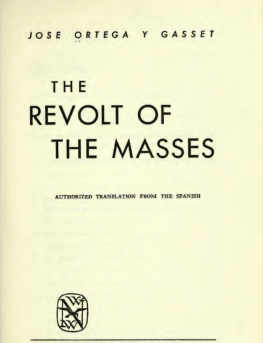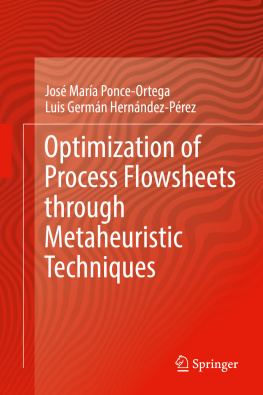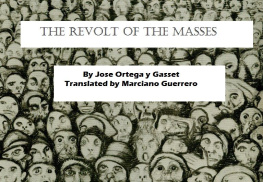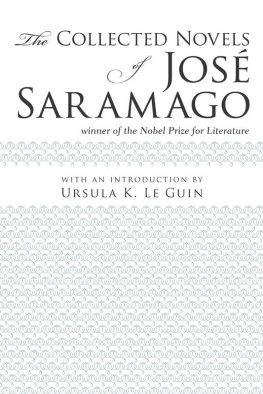José Ortega y Gasset - The Revolt of the Masses
Here you can read online José Ortega y Gasset - The Revolt of the Masses full text of the book (entire story) in english for free. Download pdf and epub, get meaning, cover and reviews about this ebook. year: 1932, publisher: W.W. Norton & Company, genre: Science. Description of the work, (preface) as well as reviews are available. Best literature library LitArk.com created for fans of good reading and offers a wide selection of genres:
Romance novel
Science fiction
Adventure
Detective
Science
History
Home and family
Prose
Art
Politics
Computer
Non-fiction
Religion
Business
Children
Humor
Choose a favorite category and find really read worthwhile books. Enjoy immersion in the world of imagination, feel the emotions of the characters or learn something new for yourself, make an fascinating discovery.
- Book:The Revolt of the Masses
- Author:
- Publisher:W.W. Norton & Company
- Genre:
- Year:1932
- Rating:5 / 5
- Favourites:Add to favourites
- Your mark:
- 100
- 1
- 2
- 3
- 4
- 5
The Revolt of the Masses: summary, description and annotation
We offer to read an annotation, description, summary or preface (depends on what the author of the book "The Revolt of the Masses" wrote himself). If you haven't found the necessary information about the book — write in the comments, we will try to find it.
The Revolt of the Masses — read online for free the complete book (whole text) full work
Below is the text of the book, divided by pages. System saving the place of the last page read, allows you to conveniently read the book "The Revolt of the Masses" online for free, without having to search again every time where you left off. Put a bookmark, and you can go to the page where you finished reading at any time.
Font size:
Interval:
Bookmark:
1930
THE REVOLT OF THE MASSES
Jos Ortega y Gassett
Ortega y Gasset, Jose (1883-1955) - Spanish philosopher, essayist, and critic. One of the twentieth centurys greatest thinkers. Revolt of the Masses (1930) - He urges that countries should be ruled by the intellectual elite to avoid the decaying influence of mob control on the arts and government.
Edited by PPC
CC BY-NC-SA 4.0
A Silvia

Preface
The Revolt of the Masses (Spanish: La rebelin de las masas, pronounced [la reeljon de laz masas]) is a book by Jos Ortega y Gasset. It was first published as a series of articles in the newspaper El Sol in 1929, and as a book in 1930; the English translation, first published two years later, was authorized by Ortega. While the published version notes that the translator requested to remain anonymous, more recent editions also record that its US copyright was renewed in 1960 by a Teresa Carey, and the US Copyright Office's published list of US copyright renewals for January 1960 gives the translator as J. R. Carey.
A second translation was published in 1985 by the University of Notre Dame Press in association with W.W. Norton and Co. This translation was completed by Anthony Kerrigan (translator) and Kenneth Moore (editor). An introduction was written by novelist Saul Bellow.
In this work, Ortega traces the genesis of the "mass-man" and analyzes his constitution, en route to describing the rise to power and action of the masses in society. Ortega is throughout quite critical of both the masses and the mass-men of which they are made up, contrasting "noble life and common life" and excoriating the barbarism and primitivism he sees in the mass-man. He does not, however, refer to specific social classes, as has been so commonly misunderstood in the English-speaking world. Ortega states that the mass-man could be from any social background, but his specific target is the bourgeois educated man, the seorito satisfecho (satisfied young man or Mr. Satisfied), the specialist who believes he has it all and extends the command he has of his subject to others, contemptuous of his ignorance in all of them. Ortega's summary of what he attempted in the book exemplifies this quite well, while simultaneously providing the author's own views on his work: "In this essay an attempt has been made to sketch a certain type of European, mainly by analyzing his behaviour as regards the very civilization into which he was born". This had to be done because that individual "does not represent a new civilisation struggling with a previous one, but a mere negation ..."
Chapter 1

THE COMING OF THE MASSES
There is one fact which, whether for good or ill, is of utmost importance in the public life of Europe at the present moment.
This fact is the accession of the masses to complete social power. As the masses, by definition, neither should nor can direct their own personal existence, and still less rule society in general, this fact means that actually Europe is suffering from the greatest crisis that can afflict peoples, nations, and civilization. Such a crisis has occurred more than once in history. Its characteristics and its consequences are well known. So also is its name. It is called the rebellion of the masses. In order to understand this formidable fact, it is important from the start to avoid giving to the words rebellion, masses, and social power a meaning exclusively or primarily political. Public life is not solely political, but equally, and even primarily, intellectual, moral, economic, religious; it comprises all our collective habits, including our fashions both of dress and of amusement.
Perhaps the best line of approach to this historical phenomenon may be found by turning our attention to a visual experience, stressing one aspect of our epoch which is plain to our very eyes.
This fact is quite simple to enunciate, though not so to analyze. I shall call it the fact of agglomeration, of plenitude. Towns are full of people, houses full of tenants, hotels full of guests, trains full of travelers, cafes full of customers, parks full of promenaders, consulting-rooms of famous doctors fun of patients, theatres full of spectators, and beaches full of bathers.
What previously was, in general, no problem, now begins to be an everyday one, namely, to find room.
That is all. Can there be any fact simpler, more patent, more constant in actual life? Let us now pierce the plain surface of this observation and we shall be surprised to see how there wells forth an unexpected spring in which the white light of day, of our actual day, is broken up into its rich chromatic content. What is it that we see, and the sight of which causes us so much surprise? We see the multitude, as such, in possession of the places and the instruments created by civilization. The slightest reflection will then make us surprised at our own surprise.
What about it? Is this not the ideal state of things? The theatre has seats to be occupied in other words, so that the house may be full and now they are overflowing; people anxious to use them are left standing outside. Though the fact be quite logical and natural, we cannot but recognize that this did not happen before and that now it does; consequently, there has been a change, an innovation, which justifies, at least for the first moment, our surprise.
To be surprised, to wonder, is to begin to understand. This is the sport, the luxury, special to the intellectual man. The gesture characteristic of his tribe consists in looking at the world with eyes wide open in wonder. Everything in the world is strange and marvellous to well-open eyes. This faculty of wonder is the delight refused to your football fan, and, on the other hand, is the one which leads the intellectual man through life in the perpetual ecstasy of the visionary. His special attribute is the wonder of the eyes. Hence it was that the ancients gave Minerva her owl, the bird with ever-dazzled eyes.
Agglomeration, fullness, was not frequent before. Why then is it now? The components of the multitudes around us have not sprung from nothing. Approximately the same number of people existed fifteen years ago. Indeed, after the war it might seem natural that their number should be less. Nevertheless, it is here we come up against the first important point. The individuals who made up these multitudes existed, but not qua multitude. Scattered about the world in small groups, or solitary, they lived a life, to all appearances, divergent, dissociate, apart. Each individual or small group occupied a place, its own, in country, village, town, or quarter of the great city. Now, suddenly, they appear as an agglomeration, and looking in any direction our eyes meet with the multitudes. Not only in any direction, but precisely in the best places, the relatively refined creation of human culture, previously reserved to lesser groups, in a word, to minorities. The multitude has suddenly become visible, installing itself in the preferential positions in society. Before, if it existed, it passed unnoticed, occupying the background of the social stage; now it has advanced to the footlights and is the principal character.
There are no longer protagonists; there is only the chorus.
The concept of the multitude is quantitative and visual. Without changing its nature, let us translate it into terms of sociology. We then meet with the notion of the social mass. Society is always a dynamic unity of two component factors: minorities and masses.
Next pageFont size:
Interval:
Bookmark:
Similar books «The Revolt of the Masses»
Look at similar books to The Revolt of the Masses. We have selected literature similar in name and meaning in the hope of providing readers with more options to find new, interesting, not yet read works.
Discussion, reviews of the book The Revolt of the Masses and just readers' own opinions. Leave your comments, write what you think about the work, its meaning or the main characters. Specify what exactly you liked and what you didn't like, and why you think so.











